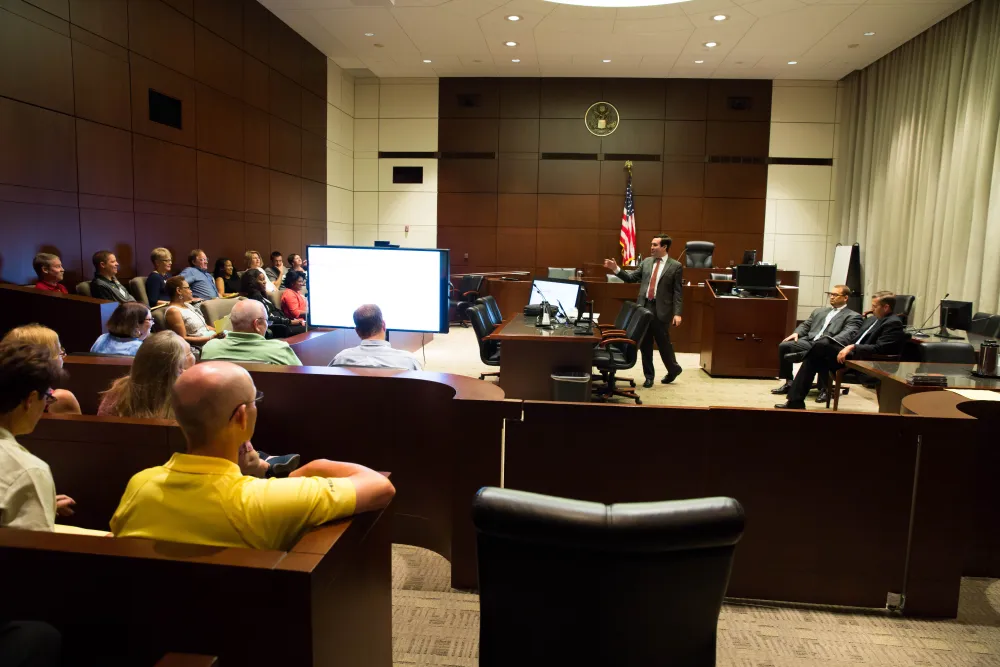
Assistant U.S. Attorney Richard Finneran lectures school teachers about financial fraud prosecutions.
An unusual partnership between the U.S. Courts and the Federal Reserve Bank, commonly known as the Fed, has given 40 school teachers a close-up look at how the law and a healthy economy are interrelated.
During a two-day workshop, held July 14-15, middle and high school teachers shuttled between the Thomas F. Eagleton U.S. Courthouse in St. Louis and the Federal Reserve Bank of St. Louis.
Their workshop instructors: federal judges, prosecutors and law enforcement officers at the courthouse, and research economists at the Fed. Topics included property rights under the Constitution, U.S. bankruptcy law, economic development and the rule of law, federal financial crimes, and the history and future of the Federal Reserve.
“It was a very natural pairing,” said Rachel Marshall, the education specialist for the federal courts in the Eagleton courthouse. “It showed how the rights we have from the birth of our country and the free market economy support each other. It really helped teachers understand that connection.”
Marshall and Fed educators said an added benefit was that the joint program, titled “the Law and the Economy,” enabled each institution to broaden its network of teachers. The Eagleton Courthouse conducts regular education outreach through the Judicial Learning Center, a public museum on legal issues, while the Fed has the “Inside the Economy Museum” and its own public education program.
“The goal was to provide teachers with the opportunity to learn from experts at both institutions and to learn about the resources and exhibits at both locations,” said Mary Suiter, an assistant vice president and economic education officer at the St. Louis Fed. “We hope that teachers leave with ideas for incorporating economics into their civics and government courses, including the economic powers granted in the Constitution, the role of government in a market economy, the rule of law, and the role of the Fed in the economy.”
Teachers observed live courtroom sessions and met with judges and other legal professionals each morning. Afternoon sessions at the St. Louis Fed included presentations by research economists, and demonstrations of lessons and activities for students.
Mike Kaiman, an AP U.S. History teacher in Wentzville, Mo., said, “I'm always trying to find new ways to incorporate economic lessons into my curriculum, as it is the subject that most confuses my students and yet has the biggest impact on their lives.”
Marshall said teachers were provided with lesson plans and course materials that they could use to integrate into their curriculum.
Debra Wiens, who teaches government and history in Clayton, Mo., was confident that she would leave the event with lessons that are classroom-ready and appropriate for her students. “I strive to keep abreast of new developments in both law and the economy, so that my lessons are fresh and up-to-date with the latest information.”
Subscribe to News Updates
Subscribe to be notified when the news section is updated.
